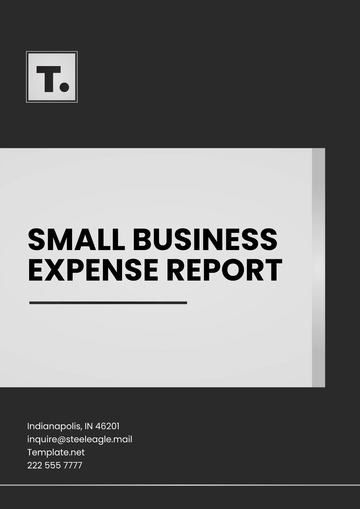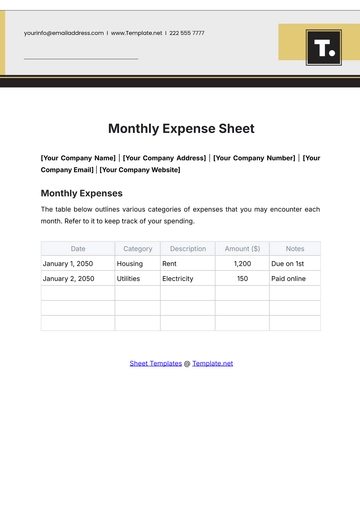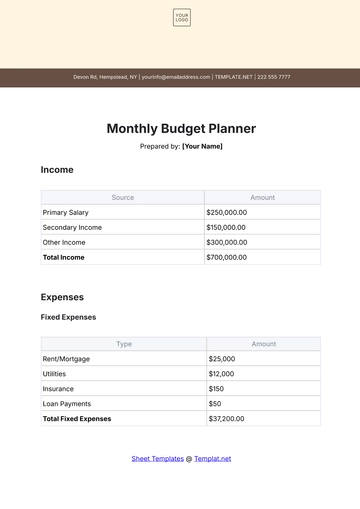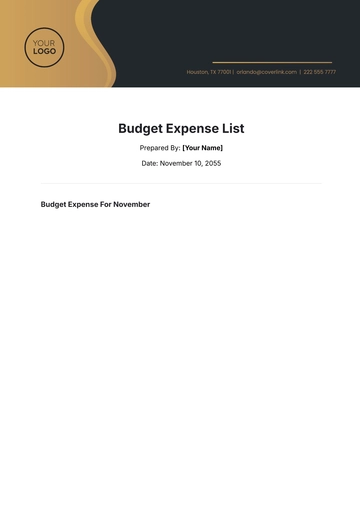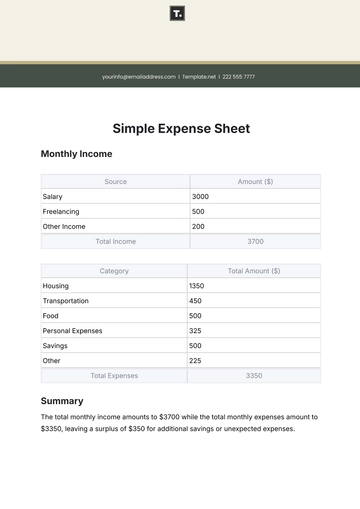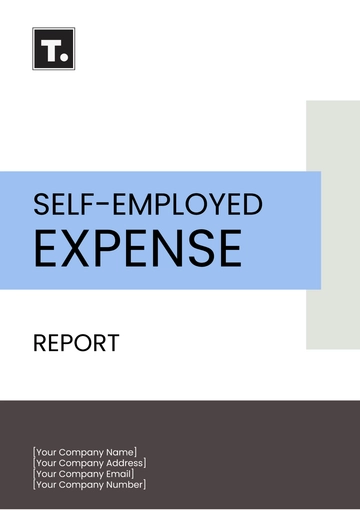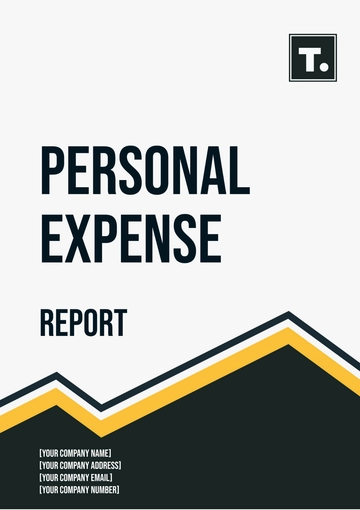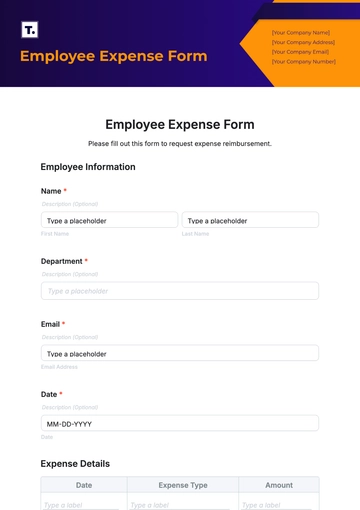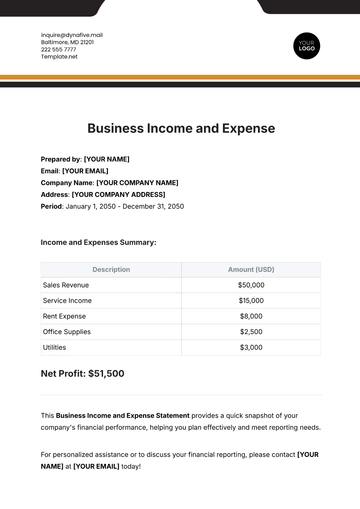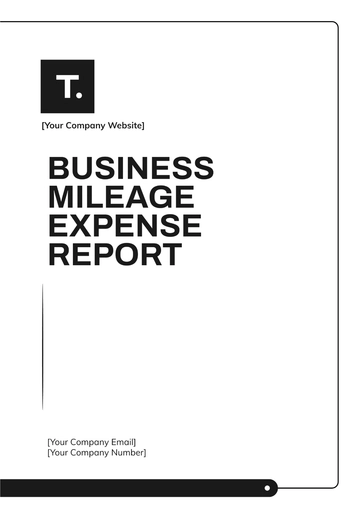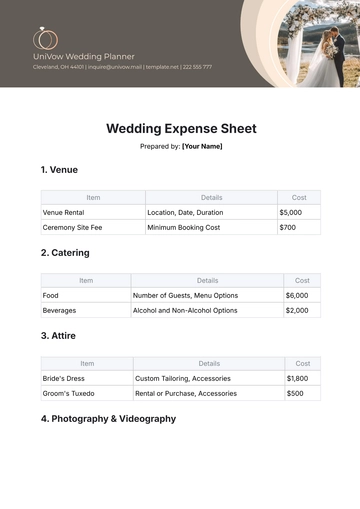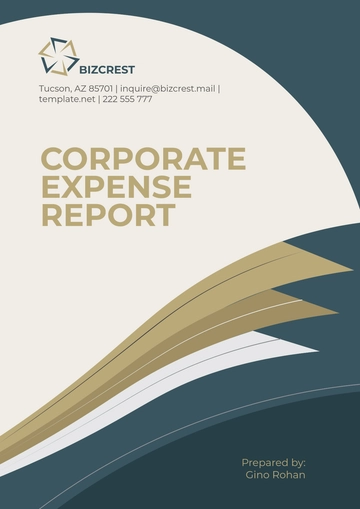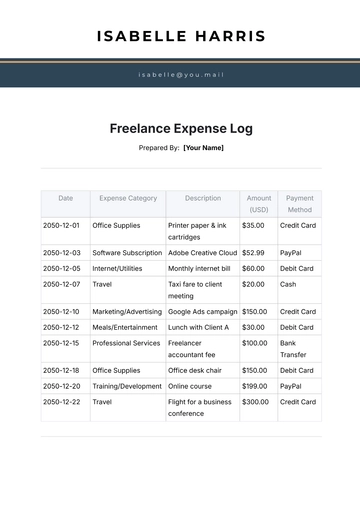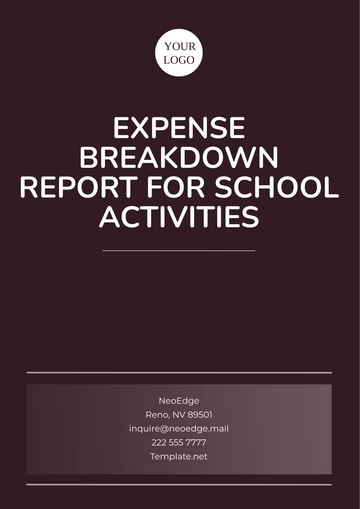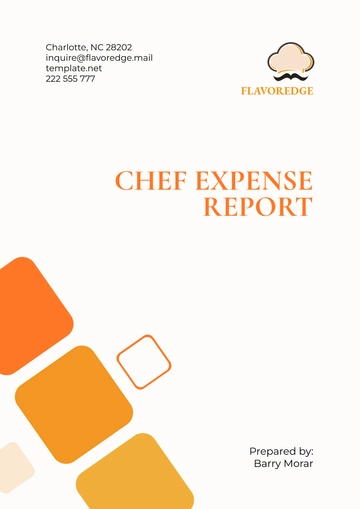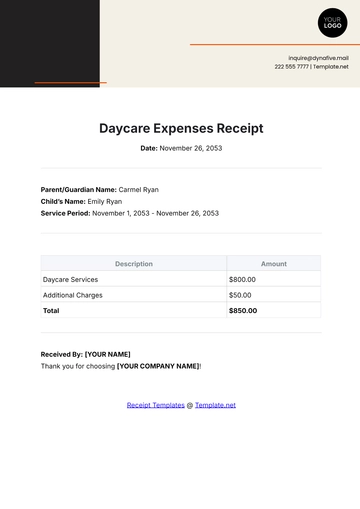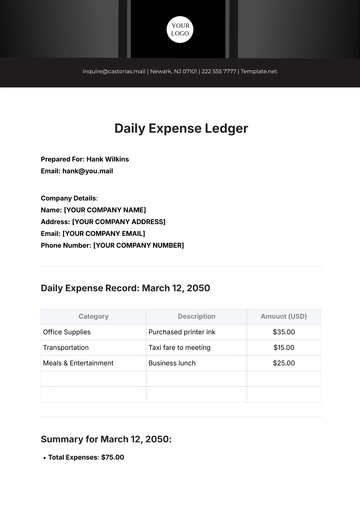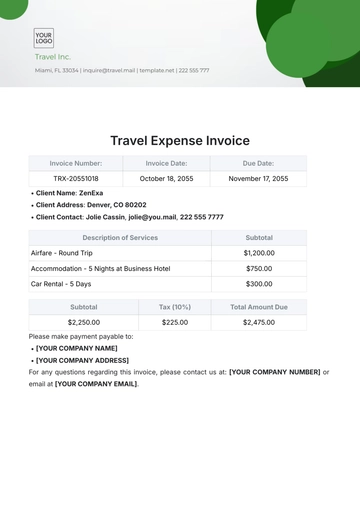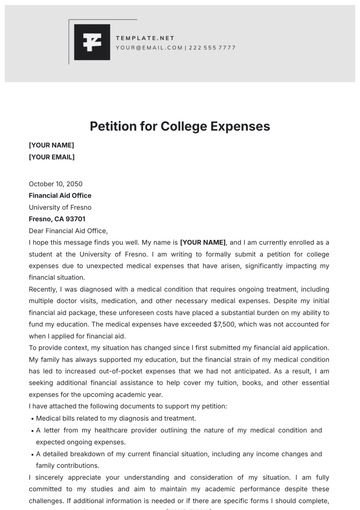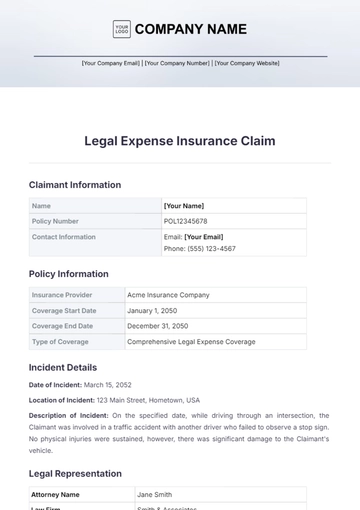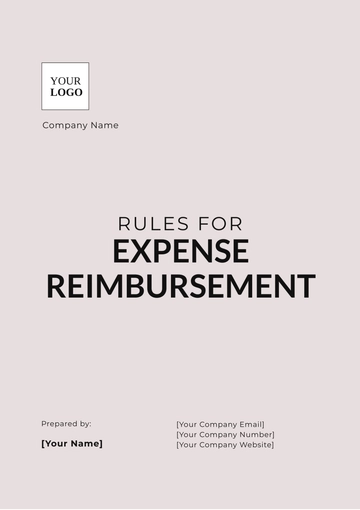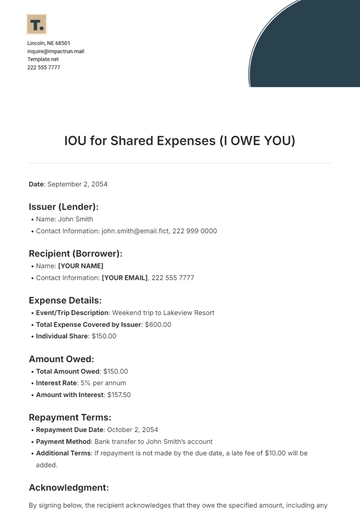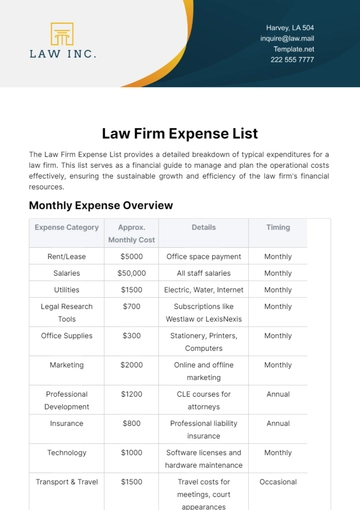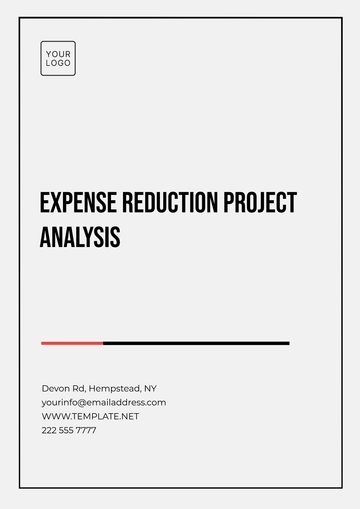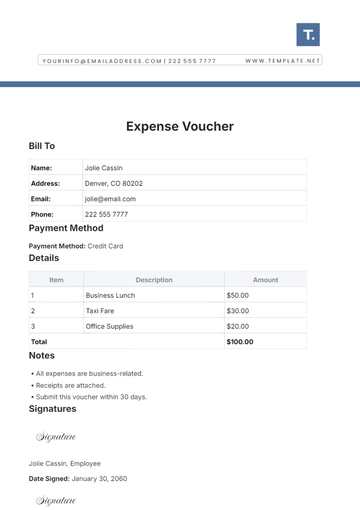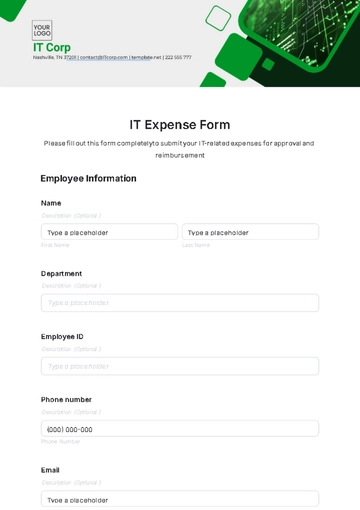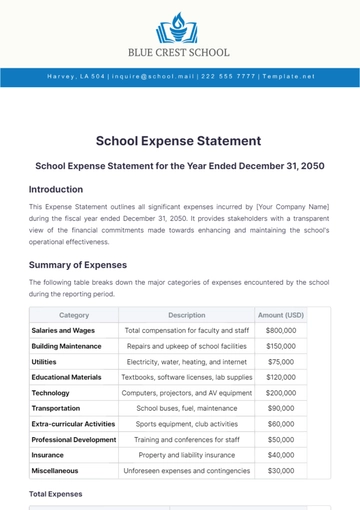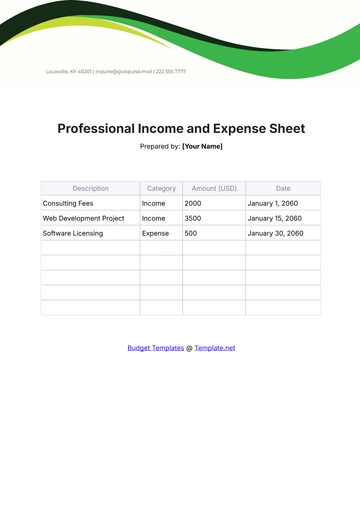Free Restaurant Event Expense Report
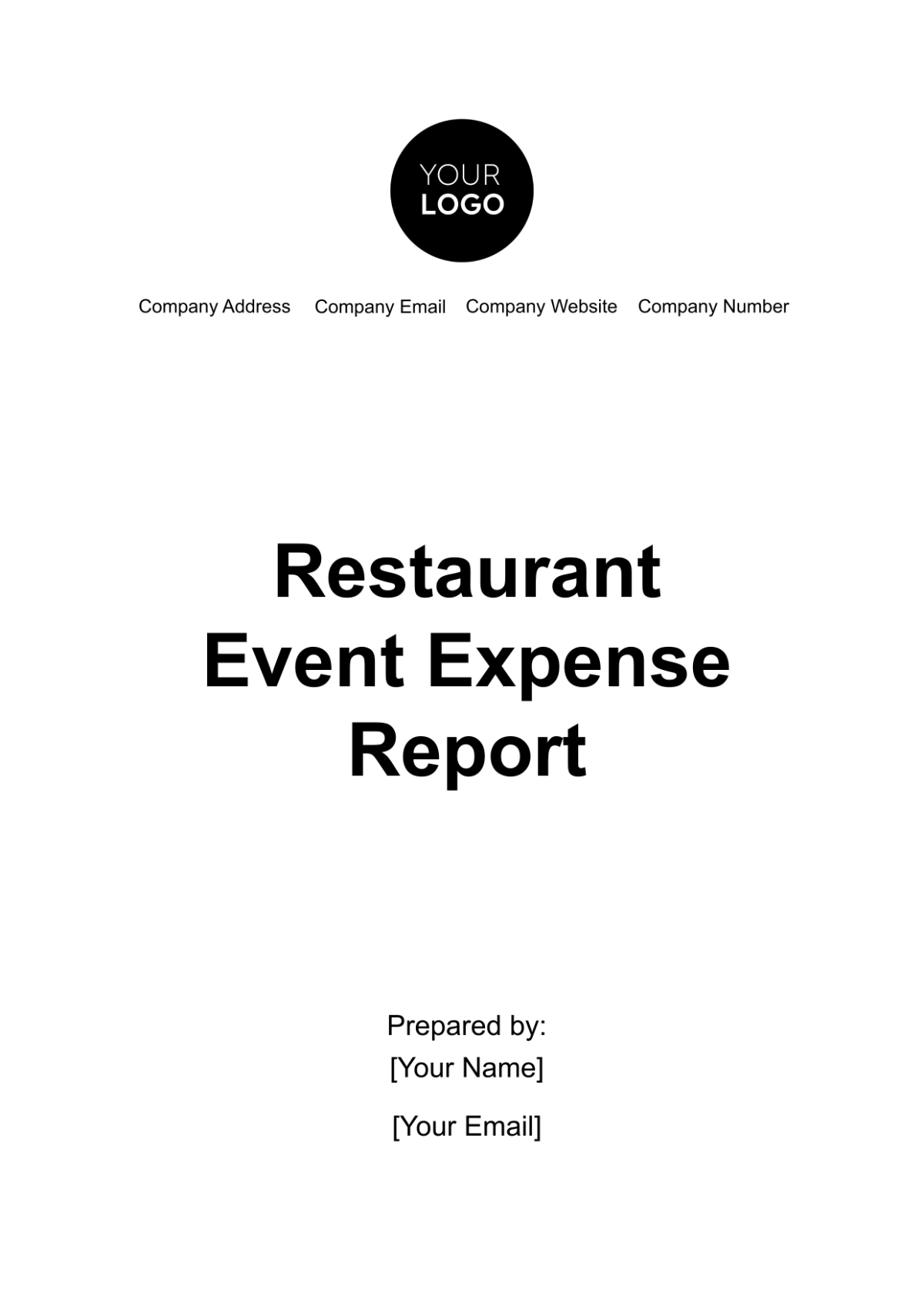
I. Executive Summary
This Event Expense Report outlines the expenses incurred by [Your Company Name] during the events hosted in the year [2055]. It serves to evaluate the financial outlays related to organizing, hosting, and managing various events at the restaurant. The data provided will help in identifying trends, assessing budget allocation, and ensuring cost-efficiency in future events.
II. Event Overview
[Your Company Name] hosted multiple events, including corporate gatherings, private parties, networking functions, and charity events in the year [2055]. The following sections break down the expenses across all events and provide an analysis of their financial impact on the restaurant's operations.
III. Expense Breakdown
The table below highlights the various categories of expenses incurred for events throughout [2055]. This covers all major cost areas such as venue setup, staffing, catering, equipment rental, and marketing.
Expense Category | Total Cost |
|---|---|
Venue Setup | $12,500 |
Food and Beverage Supplies | $38,000 |
Staffing | $15,000 |
Marketing and Advertising | $8,000 |
Equipment Rentals | $6,000 |
Miscellaneous | $4,500 |
Total Expenses | $84,000 |
Percentage of Total Expenses:
IV. Event-Specific Costs
For a more detailed understanding of individual event expenditures, we have broken down the costs associated with each major event. This data will assist in evaluating cost-per-event efficiency.
Event Name | Event Type | Total Event Cost |
|---|---|---|
Annual Charity Gala | Charity Event | $30,000 |
Corporate Luncheon | Networking Event | $15,000 |
Wedding Reception | Private Event | $25,000 |
Holiday Party | Corporate Event | $14,000 |
V. Analysis of Event Expenses
The expenses for [2055] were primarily driven by food and beverage supplies, accounting for [45%] of the total event budget. This aligns with [Your Company Name]'s commitment to providing high-quality meals for guests. Venue setup, including decorations and seating arrangements, represented [15%] of the total cost, ensuring each event met the desired aesthetic standard. Staffing costs, which include wages for wait staff, chefs, and event coordinators, made up [18%] of total expenses.
Marketing and advertising, which targeted potential event organizers, made up [9%] of the total expenditure, reflecting our efforts to increase event bookings. Equipment rentals and miscellaneous expenses accounted for a combined [13%], covering the essential logistical needs and compliance requirements of event operations.
VI. Cost Efficiency and Recommendations
Although the overall event expenses were within budgetary expectations, certain categories such as food and beverage could be optimized through bulk purchasing and negotiating better supplier contracts. Additionally, marketing spend should be closely monitored to ensure it provides an optimal return on investment (ROI).
Supplier Negotiations: Streamlining contracts with suppliers for better rates on food and beverage purchases.
In-house Services: Expanding in-house resources for décor and equipment to reduce rental costs.
Staffing Flexibility: Cross-training staff to handle multiple roles, reducing the need for temporary event staff.
VII. Conclusion
[Your Company Name] successfully managed its events while maintaining a balanced expense-to-revenue ratio. The financial analysis presented in this report underscores the restaurant’s efficient allocation of resources. By implementing cost-control strategies, the restaurant will continue to improve the financial outcomes of its event hosting services in the future.
- 100% Customizable, free editor
- Access 1 Million+ Templates, photo’s & graphics
- Download or share as a template
- Click and replace photos, graphics, text, backgrounds
- Resize, crop, AI write & more
- Access advanced editor
Keep track of event costs with the Restaurant Event Expense Report Template from Template.net. This editable and customizable template helps you create organized reports detailing expenses for restaurant events. Use our Ai Editor Tool to adjust sections, calculations, and layouts, making it easier to monitor and manage event budgets.
